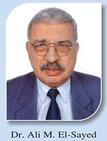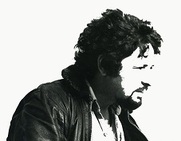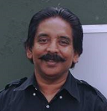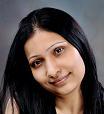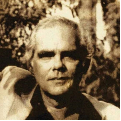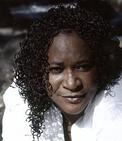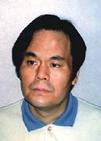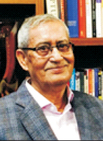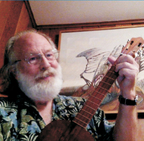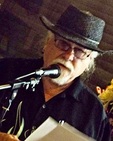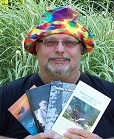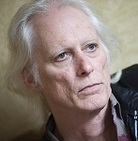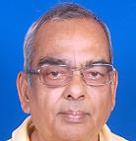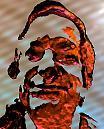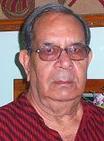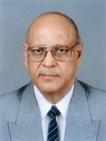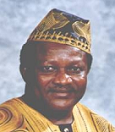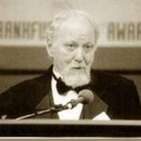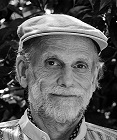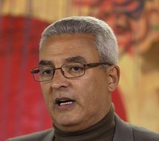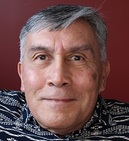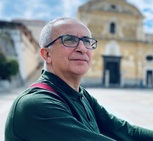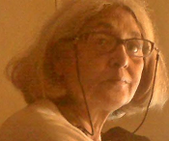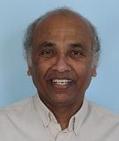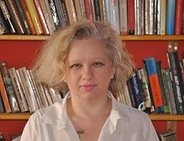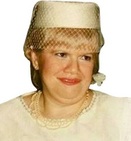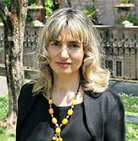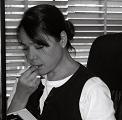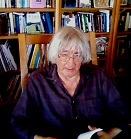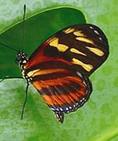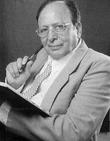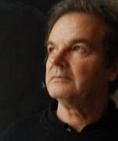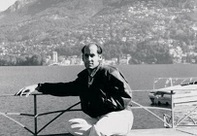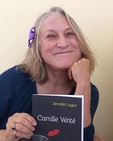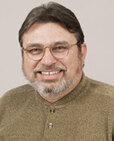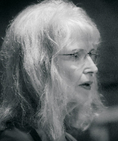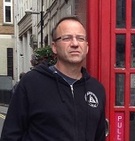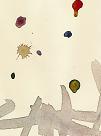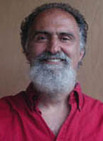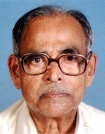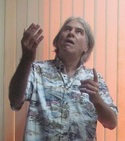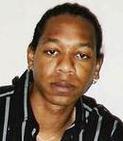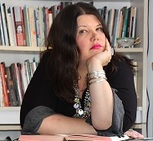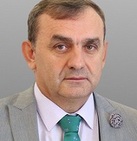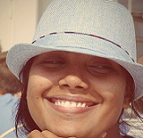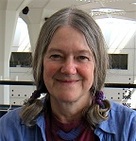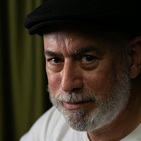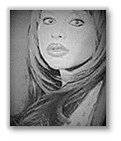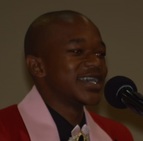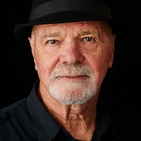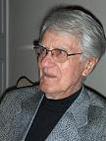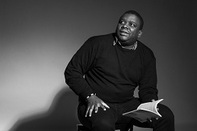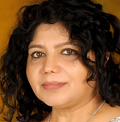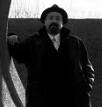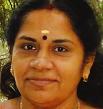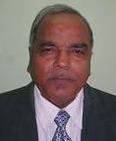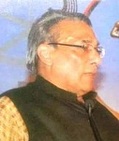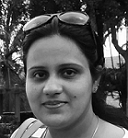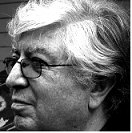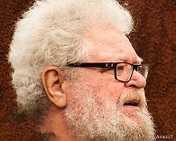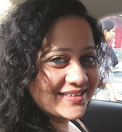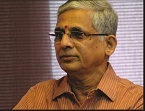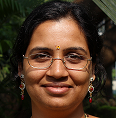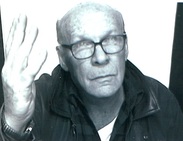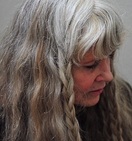Essay on Bilingualism
THE DILEMMA OF MODERN BILINGUAL POETRY - VIRTUES AND INDISCRETIONS.
(Part one: the essay)
Bilingualism/multilingualism in written and performed poetry is a fascinating and complicated topic, encompassing many questions, including what type(s) and level(s) of writing does one assign one's varying language capabilities, when and how one uses a translator or editor efficiently, questions regarding research of historical, cultural, socio-economic and geographical events when making references in poetry, politico-social sensitivities across cultural boundaries etc. Not to mention the appropriateness of using one language instead of another, and questions regarding market demands and specifications from publishers. The fact is that many poets are currently writing in languages other than their native tongues - for a variety of reasons, and with varied success.
I have been reading and hearing much "bilingual" poetry written and published by people from all over the world the past few years. Poetry writing is not a static process. Even excellent bilingual writers often work quite hard to find the right balance between artistic license, spontaneity, grammatical perfection, spelling, etc.; all the while retaining the special qualities that make poetry "literature" and universal while still achieving a personal form of ex-pression. My premise is that: a) all writers face the same challenges, b) bilingual ex-pression makes these challenges (and successes and failures) even more poignant, and that c) some authors have learned how to achieve a balance which works - both for themselves, and for their readers .. while others have not.
What strikes me about my own disposition towards bilingual literature is that it affords me an extra set of wings on which to soar .. high above the limitations that both I and others set for myself. I love to experience languages and "foreign" cultures, and find that multilingual writing gives me the opportunity to reach out to persons from many cultures on their turf - whether by way of publishing poetry in different languages, or by performing my poetry in different countries .. in Spanish in Buenos Aires; in English in Kathmandu (including reciting my poetry based upon local culture, with references to indigenous vernacular and customs); and at home in Norway: to expose the small Norwegian literary community to the larger world by reciting poetry in Norwegian, English and Spanish - all in one reading. That being said, there is (in all honesty) an element of "extreme sport" in it for me - as exemplified by my most recent poetry collection ("Three-legged Waltz") which includes poems in Spanish, English and Norwegian - this because I enjoy testing out my interests and skills where other languages are concerned against the appropriate level/form of ex-pression; thus the "act of multilingual writing" becomes a statement and a form of ex-pression in itself. And yet, there are certain experiences that simply ache to be expressed in French or Spanish, or Norwegian .. and no Greek epic poem is really "Greece-inspired" in my mind if it does not contain some Greek words or phrases. Latin and Arabic and other languages are also subject to falling victim to my poetic palette. Of course, there is an enormous responsibility connected with such sport. Not only to try to get the grammatical and contextual elements correct, but also to firmly grasp and communicate across different cultures with sensitivity and just the right amount of "foreignness" to incite and provoke a stretching of minds and hearts within the readers and/or listeners. Poetry is not a precise discipline for most of us - it is full of abandonment, liberties and artistic license .. and at times error and foolhardiness.
My own experiences to date with bilingualism in writing have generally been quite positive. That is perhaps only because I have learned to "soar" as an international poet, rather than to continuously knock at the door of national and local arts institutions whose mandate and focus are often more nationalistic and transcultural rather than international. I have also gone my "own way" in terms of publishing - seeking out or being sought out by publishers who are culture-blind and truly international in scope, practice and philosophy. Such institutions are generally quite open artistically, but sometimes place much of the responsibility for bilingual/multilingual proof reading (regarding both language and cultural knowledge) in the hands of the artist - at least when one is writing in a "tongue" which is different than the "mother tongue" of the country where the publisher is physically situated. This is understandable in that many of these publishers are small press enterprises, with limited resources. Personally, I rather like having their trust, and being responsible for my own artistic ex-pression. Am I sometimes unsure? You bet! Especially when I write about politics or religion, or when I wonder if some socio-political themes acceptable in the Western world will be accepted in Asia or Africa . Poetry may be universal, but ideas and values are often culture-specific. It is that tension that makes bilingual poetry writing and performance a breathtaking sport for me, I suppose.
I do not speak, write or understand any language anywhere near "perfectly". However, desiring to "get it right - both linguistically and culturally" - and writing with intent (and on a level commensurate with my linguistic skills and cultural understanding), is always a goal; if not an obsession when writing in any language. In spite of much research and proof reading, I admit that I do not always get everything perfect. It happens that I do misunderstand grammatical rules and indigenous nuances in foreign languages, or quite simply use the wrong word in the intended context. Free automatic internet translation services are rarely 100% reliable, and there exist inaccuracies in many internet articles. I have also experienced that proof readers and translators have sometimes disagreed upon how something is best expressed, creating even more insecurity on my part. And cultural references in poetry can also be problematic, since different persons observe and experience things through different eyes.
Yes, I do react sometimes when I read particularly and consistently faulty English which perhaps could have been avoided by asking (or paying) someone to proof read. This goes for native-born English-speaking poets as well as poets who do not have English as their first language. So much is lost for both the author and the reader in such cases - and quite unnecessarily so. But then again, not all speakers of English speak "the Queen's English", and if English may be prone to being used or interpreted differently from culture to culture then the same is certainly true for other languages. Here one must also differentiate between creative play with language and idiom, and plain oversight. Sometimes a poet is truly "ahead of his/her time", and sometimes just blind to one's own limitations. Learning to discern between oversight/inaccuracy, poetic doodling and literary genius is not always so simple (neither for poet nor audience) in a discipline where most every type of ex-pression is accepted - from poetic and rapturous prose to closely designed feminine rhyme. Creative doodling and oversight can - in fact - open up for new forms of ex-pression, understanding and linguistic permutations in literature, and inaccuracies can sometimes provide valuable learning about writing and one's own levels of tolerance/intolerance.
So in summary, I encourage bilingualism/multilingualism with personal responsibility and growth. Expect that you will make mistakes sometimes, and that you may later discover that you have misinterpreted another culture's idiom or sensibility in your writing. When reading the poetry of others try to evaluate some of the questions and challenges posed in this essay and the following interview against your own levels of curiosity and personal tolerances. Writing/art is about exploration, ex-pression and the criss-crossing of perceptions, and is - therefore - never a static process. And perhaps most importantly: don't worry about becoming world-famous. Fame will find you if that is your destiny and disposition - no matter what language you employ.
To explore these issues a bit further, I have devised 10 sets of rather pointed questions; and I have asked five excellent international writers to comment on them, giving their "international" perspectives. Their varied comments and experiences are - of course - their own, and not necessarily those of the interviewer. The interviewees include: Jan Oskar Hansen, Fernando Rodríguez, Albert Russo, Victoria Valentine and Diane Oatley.
- Adam Donaldson Powell
The Interview
1) In an age of increasing bilingualism/multilingualism in written, performed and published poetry one might wonder what the drive or impetus is. Would you say it is: a) a need/desire to reach a global market; b) a need/desire to stand out from poets who are only writing in their mother tongue; c) a personal ego-trip or a form of literary "extreme sport"; d) an awareness that many things simply must be expressed in a foreign language; or e) all four of the/some of the preceding; or f) something else?
J O H: A sense of not getting anywhere in my own language. (A feeling of inadequacy, memories of failures and so on). And yes, reaching a bigger audience too.
F R: It is very candid to project an image, according to one's original intention, in another language, where also, perhaps, a point of contact exists. The point of contact being between two languages; through language from the experience of the author who sails daily between these two languages. For me, actually, it is a way to sail strange waters in as much as sailing them has become a part of my homo poeticum, an important part of my writing identity. Sometimes I feel in Spanish and I write it thinking about Norwegian. For that reason my texts translated into Norwegian are an interactive work of cooperation and experiences, on a concrete linguistic existential level -- between the author and his translator. To live in Norway , a small country where nevertheless so many languages co-exist, causes me to prioritize Norwegian, instead of English or French, for this same reason; not to speak of other romance languages, that in the text are nearer Spanish, my maternal language.
A R: I have indeed a strong desire to reach out to a global market; in my case it is not a sport and least of all an ego-trip but rather an existential need, for English and French are part and parcel of my mental (and I should add 'emotional') structure, and if I don't write in one language for a period of time, I feel like an orphan; for I consider both languages as my native tongues (my mother being British, and I have been educated in these two languages from the very start). Then comes Italian, my 'paternal' tongue (my father was Italian), and since I love languages, I also speak Spanish and German, and have a vernacular knowledge of Dutch, Swahili and Portuguese (which I can only read, but not speak). To stress my point, I would go so far as to claim that we, language speakers, are underprivileged, confronted with musicians, painters and sculptors, for they possess a universal language, which even the all-encompassing polyglot could never dream of achieving.
V V: I believe the driving force combines the desire to express and share one's native tongue - a poet's emotional fulfillment of delivering enrichment of their culture to another country (shout it to the world so to speak) - and of course, the accomplishment and pride of acceptance by other cultures.
2) Much modern-day poetry is self-published or published by altruistic small press enterprises, many of which do not have the resources or capacity for multilingual editing. This puts quite a bit of responsibility on the author himself/herself. What are the most common indiscretions or literary problems you have observed in poetry written in another language other than one's mother tongue, and how might they be solved by the author/publisher? Are editors/proof readers/translators usually sensitive enough to the intended artistry of poetry, or do they sometimes tend to suggest changes which "flatten out" the intended meanings?
J O H: I rely on editors to take time to help correct my work; even if I self-published I would still need, if not an editor, a proof reader. But if my work is translated I would prefer that a poet do the work.
F R: The problem, if we can call it a problem - it is perhaps better to call it the requirements of the publishers - is one of referential order. When the language sometimes pronounces in that no-man's land and of all which is multilingualism, the reading of the text is often, if not always, interpreted by the referring premises; either national references or those of a strictly personal nature; they also respond to an intention limited for reasons of market, ideology and, more rarely mentioned, religion. Even though a translator identifies himself entirely in his soul, or in the worst case, with an author who represents the contemporary ex-pression of the day, or as I said before, ideologically, the result is spurious for the simple reason that the contexts and the experiences are different. Consider, for example, the Argentine translations of the beat poets, or those passionate translations of the French symbolists to the Argentinean dialect. Still the remarkable translations of Borges to Spanish, are recreations of authors who he possibly considered translatable, but always from his own perspective of the literary world exemplified by Borges (known to the common reader as "Borgiano"). In my case, my translations into Norwegian are the consequence of a permanent dialogue between two languages where the referring ones are not so distant, for the simple reason that I have lived in this country for 22 years.
A R: Since bilingual, not to speak of multilingual editions, are not considered commercial ventures, they belong to a tiny, almost negligent niche in literature; and I admire the rare publishers and editors who devote their time, expertise and energy to producing such books or reviews. Small presses are usually very careful and do a good job editing, although, with the proliferation of Internet literary sites, there is a slackening tendency. A poet who writes in a language which is not his/her mother tongue should insist on having his/her work proof read and edited, and the more so if the work is self-published.
V V: Grammar, sentence structure and verb tense are issues I've encountered when considering bilingual/multicultural poetry for publication in my magazines and digests. I do receive a good share of 'poorly written' bilingual work (as well as 'poorly written' work in English). If any piece falls below Skyline Magazine standards, I would have to reject it. As an independent small press publisher, I do not have the resources to translate or critique. I never alter or correct any poet's work, or dampen their ex-pression or enthusiasm. If I like a piece, and find a serious error, I would then consult the writer, but I must admit, I find 'poetic accent' charming and acceptable. My readers appreciate the talent and ambition of the multilingual poet. We would not disparage a poet for a misplaced preposition or for an improper tense. We are forgiving of the poet who is unable to afford an editor and/or translator. We herald the efforts of multilingual poets for their amazing ability to create texts in other languages and to persevere in a highly challenging venue.
3) It must be quite a sensational achievement to publish poetry in a language other than one's mother tongue, or to have the freedom and dexterity to choose which language a poem or part of a poem or an entire collection of poetry will be in -- without having to employ a translator. Can you comment on this "virtue", and the exhilaration experienced when one succeeds?
J O H: When I sent a poem to an English magazine for the very first time, it was rejected; but the rejection was followed by a letter urging me to go on, telling me that I was on the right track and THAT was exhilarating. If I had not been so rudely rejected by Norwegian editors, I might not have undertaken some efforts which have, at times, been too absorbing.
F R: My poems which are written directly in Norwegian or English normally have been inspired by alcohol or by a woman; both agents of another euphoria which is more transitory than indelible; the result which normally has been rather more anecdotal than literary. I write in Spanish with translations to Norwegian and that is sufficient for me, so far. My first translated poems were motivated by the curiosity of my Norwegian friends, not so much in order to become acquainted with my poems in their own language, but perhaps to verify that I really am a "poet", or to verify that my poetry was a serious talent or endeavour. I am equally thankful for the translations by two friends, Eivind and Lasse (whose last names I will not mention here), which I eventually added to a handful of poems that I later published under my own publishing seal, Círculo de Oslo Forlag (a bilingual edition, published in Spanish and Norwegian). Once published, I could verify that a large group of poetry readers exist in this corner of the world, and in spite of these rather modest publications, I received good commentaries and I sold out the complete edition. Now, that which for me is an apparent paradox, is that the most avid readers of these poems, have been those readers whose native language is Norwegian.
A R: Yes, there is a 'freedom' and an exhilaration in writing in another language which is different from the feeling one has, writing in one's mother tongue. Having taught languages for several decades to adults, I observed a recurring attitude in the learner: as he/she progressed and got more fluent, he/she began to express him/herself in a manner which he/she could not in his/her mother tongue. There was a sense of freedom never before attained. Of course, writing is a much more serious enterprise, and the responsibility on the creator is proportionate to the endeavour.
V V: I can only imagine the gratification a multilingual poet experiences, who possesses the ability to compose expertly in more than one language without the use of a translator, and has been accepted into other cultures. It's an admirable feat not easily achieved.
4) What are the literary career risks if one "fails miserably" -- how forgiving and how understanding is the literary community (other writers, readers of poetry, editors and critics)? Is it perhaps acceptable to write some bad bilingual poetry, inevitable to perform some bilingual poetry badly but "unforgivable" to publish bad bilingual poetry?
J O H: To write second-rate bilingual poetry is not acceptable. A proper editor would not be influenced by that. I used to make that very clear in the beginning (my first wife used to say; "You write well for a foreigner") and it never failed to send me into a deep depression. Failure! What can I say? Try, try again if you believe in yourself.
F R: In Norway I am considered a bilingual author, and I am treated as such in that my texts are published or read in both languages. As a bilingual poet, I am fascinated by the interplay between my original and the translated versions, and I enjoy seeing how the original becomes transformed through the translation process. As far as giving a specific answer to your question: if poetry is a form to exert freedom through language, this in one or another way is manifested -- simply by the fact that the existence of the text is in itself a belligerent act. How then can we speak of good and bad poetry?
A R: It is always unforgivable to write poorly in whatever language one chooses to write. If one wants to start writing in another language, one has to be as precise and as scrupulous as possible, and never submit work for publication that hasn't been reviewed by a native editor. I love the example of Joseph Conrad who started learning English in his adult years, and who eventually became one the great authors of the English language.
V V: I do not accept any form of poetry that I feel is below par for Skyline Magazine, regardless of who has written it. We have high standards for publication. I do feel however, that I allow more freedom of composition and poetic license to multilingual poets. As a publisher, I find no particular risk in doing so, as my readers appreciate the efforts of writers who undertake this difficult task. They are energetic and courageous, poetic pioneers, and should be rewarded for their extraordinary efforts. We must give them every opportunity to sharpen their multicultural writing skills and encourage them. Even in the face of failure, writing is a learning experience for all of us, in all cultures. There is always room for improvement and growth.
5) How important is it to publish in English today? What advice do you have for a poet who is writing bilingually, or who is considering writing bilingually?
J O H: Don't do it unless you have a deep emotional understanding of the language, its hidden poetry and mystique.
F R: Very important, considering the legacy of the English language in literature; especially in poetry, where the references are unavoidable for any serious poet, not to mention that English is the first transactional language of the world, followed by Spanish. I believe that, under the eaves of Shakespeare and Cervantes, our foundation is very solid. I think about Isaac B. Singer who wrote his books in Yiddish with translation into English, where he worked quite closely with his translators. On the other hand, poetry translations done by poets usually are quite good - that is, as soon as one settles upon a species of dialogue between two poetic beings through language. Even so, the result is usually a transubstantiation of the poet, translated to the language of the poet who translates it. On the other hand, the perfect translator does not exist; to think the opposite is simply a projection of your own narcissism.
A R: The importance of writing in English depends on one's ambition. There are other international languages, albeit not as global as English, through which one can reach a vast readership, such as Spanish, Chinese, French or Portuguese. That being said, I'm all for writing in one's mother tongue, be it Urdu, Tagalog or Finnish, for diversity is what makes our world interesting and rich. Then, if you wish to use another more international language, in order to reach a wider audience, you have to face up to the responsibility of doing it in the best and most efficient manner.
V V: It is important to publish English today. It is important to publish all languages today, as nations are merging with more frequency. We must learn about each other, accept one another, for the advancement of all talents and cultures. Skyline's motto and firm belief, from day one: Bringing The World Together Thru The Arts. We can help promote greater understanding and tolerance through literature and arts. I would encourage a multilingual writer to read the original texts and translations of other writers. Submerge themselves in all styles and cultures. As with any literature, study your market and submit accordingly. Multilingual writers should seek out publications that are familiar with and publish multicultural writing.
6) How do you react to poetry written in "poor English", "poor Spanish" or "poor French" -- are there certain limits as to what you can accept as a reader and professional, and how much "artistic license" should be permissible from a bilingual/multilingual poet?
J O H: Bad poetry is bad in any language. It must said that I used to be dismissive of some Indian poetry until I understood that they use the English language somewhat differently. One of my favourite poets is Pradip Choudhuri. I sometimes invent words if I can't find the right one, and editors think it is I who gets the languages mixed up. But what is bad poetry? No one sits down and says: "I'm going to write a really bad poem". Personally I dislike sentimental poems/dishonest poems/me alone against the whole world poems, and poems that contain filthy words when it's not needed.and if I read another poem about the fucking moon, I'll scream.
F R: Bad poets exist in all literature, but bad poetry is quite another thing. The challenging thing in reading so-called "bad poetry", is to recognize the intention of the author and to identify its referential linguistics. One more reading, more even-tempered than critical, of that which is fixedly called "bad" poetry, can sometimes prompt us to play at reconstructing the original intention.
A R: I react badly, for as I said earlier, if one is not proficient enough, one has to do everything to improve his/her skills and consult an expert, and not submit anything for publication that is not near perfect.
V V: Although I am a perfectionist with my own written work, as a reader, I do not especially look for perfection, per say. I don't dissect. This does not mean that I would publish 'anything', but rather that I find interest and beauty in words . and in a broad variety of material. As a reader and publisher, I look for meaningful, engaging literature-poetry of all genre that moves me emotionally, in all directions. I want to feel what the writer is expressing. I want to experience their words-to visualize their ex-pression. I can overlook minor bilingual/multilingual flaws, but I would reject anything hollow or barren, regardless of the writer's nationality. Fine poetry must be intelligent, have a consistent flow and deliver a specific message, regardless of its origin. I think I would be less tolerant of "poor English" than poor multilingual writing. I'm sure this is because I deal more with American poets. I want to offer the benefit of doubt to the writer who is learning and struggling. They deserve it. It's the 'message' I am seeking, and will give leeway on how it's delivered, as long as the passion and talent are brilliantly engaged.
7) What do you think established large press enterprises think of and look for in bilingual poetry? Are they and/or most literary magazines in your country of residence open to publishing bilingual poetry, or poetry written by persons who have another mother tongue?
J O H: I live in Portugal . I sent an English-written manuscript to a publisher here in Portugal , but unless you're very famous ...... (To be dead is helpful too.) No one wants to know. I don't really blame them. I have made attempts to write in Portuguese, but find the grammar too restraining.
F R: In Norway , as I also suppose is the case in other countries, there exists a cultural policy that in principle and aim protects its cultural values based on its historical and political traditions. Thus it is so that, according to these parameters, I believe that commercial publication of bilingual editions of poetry generally requires government support and mandates; and current national policy leaves little room for such at the present time. In Norway officially approved books are subsidized by the state with the purchase of a considerable number of each book to be distributed to various institutions of the Kingdom, such as libraries etc. As the press (as much as the magazines) has a certain influence in this country, they accordingly in one way or another respond to these directives most faithfully.
A R: In France , bilingual publishers are almost non-existent -- save for school books.
V V: Although I cannot speak for other publishers, especially for the motivations of large publishing houses, I would assume they look for intellectual texts that are expertly translated and well written; employing the same standards they would use for English texts. I doubt they give much latitude to any writers. I would think they seek perfection. Publishing wonderfully-composed multicultural texts is an enriching experience for any publication, and large houses would strive for the very finest. I believe there is a flourishing market for multicultural texts in the USA , as for English writing in other countries.
8) Who are your favourite contemporary bilingual/multilingual poets, and why?
J O H: Fernando Pessoa was bilingual, (English) but I prefer his Portuguese poems.
F R: Kevin Johansen, because he is a not in actuality a poet, but rather a modern-day troubadour who moves between two worlds and two languages where he nicely shapes his condition for being and not being poetic - "non-poetic" I would say, with humour and distance. A distance which is signified by his Nordic origin, transplanted to the USA and Argentina . A sort of continual refugee - sometimes singing in English and sometimes in Castilian - constantly playing with questions about identity: 'To be or not to be'. Do you happen to know his work?
A R: One of them is Adam Donaldson Powell, for he has the sensitivity and breadth which I find quite exceptional. His Weltanshauung is combined with an intelligence of the heart - in short, empathy. Great writers and poets cannot only be talented cynics, they have to show compassion, at least that is how I value great literature. And Adam Donaldson Powell has all of this combined in his poetic work - he is also an artist and a musician, which makes him a renaissance man.
V V: I can't say that I have favourites, as I have had the pleasure of reading the work of so very many wonderful writers, but I would say that I am partial to those who create flowing, free verse. Amitabh Mitra writes wonderful poetry in English, his poems a strong reflection of his Indian heritage. I find his writing sensual and intriguing. So if I were to have favourites, Amitabh would be at the top of my list. I also admire the vision and work of Sheema Kalbasi, who is a human rights activist, poet and translator. Besides being multilingual, she is multi-talented! There are too many fine talents in this world to select just a few.
9) Do you feel that most contemporary literary critics and editors are well-enough equipped to properly judge your bilingualism?
J O H: Yes I think so. When I once wrote "THAT" instead of "WHO" about people my editor wanted to keep it in, but I refused. But there are magazine editors who reject my work point blank because it sounds "foreign". But that's okay.
F R: Surely there exist one -- and perhaps several, who want(s) to believe, that he/they read(s) poetry in the secret catacombs of "true knowledge" -- hidden to the public eye. These persons will always exist. They are the true critics of the future, those that read and write their critical commentaries in their own languages, including some languages and dialects which are in danger of extinction. But they will eventually appear upon the "great stage", and they will re-take into their hands the pens which were snatched from them.
A R: No, they are indeed a rarity and we, bilingual/multilingual writers are often considered as mavericks, especially here in France.
V V: Unfortunately I am not bilingual, but have had two of my own short stories translated by the French editor Eric Tessier, and published in the esteemed French Magazine, Place au[x] sens. I am unable to offer an opinion as to whether or not other publishers and critics are well-equipped to properly judge bilingualism. However, I have found the editors and translators I have worked with to be competent, fair-minded and extremely dedicated.
10) Do you have other comments you would like to add to this discussion?
J O H: You have given me many things to think about. Both my collections "Letters from Portugal " and "La Strada" had an editor. I'm lousy as a proof reader of my own work. The reason is that it is "right" in my head. I self-published a collection of poetry "Lunch in Denmark " and only when the book was printed did I see the myriads of grammatical and spelling flaws. As an autodidact I'm feeling the language more than actually knowing it; that's because I think in English sentences. The drawback is when I read Norwegian. I'm too critical of my own language when I read the news on the internet (for example Norwegian tabloids). They seem to be written to suit the lowest nominator; the language has been flattened. But having been away from Norway for so long my views could be old-fashioned. When writing in English there are moments when I don't find the right word, but I don't think about what it is called in Norwegian. I sort of work around and find an ex-pression that fits. English is an elastic language, but I still make so many mistakes. It always embarrasses me because I can see them when they are pointed out to me, and I spend much time kicking myself. I'm therefore glad when an editor takes the time (and indiscretions). But there are times when an editor proposes to change the ending of a poem, and that's bloody annoying.
F R: Yes, I am done except for the following question: Which Norwegian poet, really fulfills the conditions of being both a catalyst and bridge for dialogue between two or more languages? I mean, a poetic catalyst that can create a multilingual arena in the Norway of today? Perhaps Erling Kittelsen, a true advocate for bilingual literature -- both in Norway and in other countries.
A R: This discussion could never end, but I shall stop here.
V V: As the publisher and editor of Skyline Literary Magazine and A Hudson View International Poetry Digest, I am constantly reading stories and poetry. You would think that after a while, all would blend together and I would become desensitized. However, I'm still like a kid in a toy store when I read submissions - and a perfect description is that I become 'overtaken' by certain pieces - even 'awed'. I am very emotional and crave the satisfaction of 'words.' I seek intense and intelligent-thought provoking, unique and intellectual writing. I find multicultural poetry to fulfill these requirements, more often than not. But again, I am a lover of the written word. As they say, beauty is in the eye of the beholder, in my humble opinion; the wonder of words is a perceptual gift for both author and reader. Thank you for the opportunity and honour of participating in your interview and discussion concerning multilingual poetry.
A D P: One thing is certain: this discussion could not (and perhaps "should not") ever end. I am truly impressed by the enthusiasm of the interviewees, their candidness and the many different perspectives and opinions given. I am also quite pleased to sense the high degree of dedication to "the art of poetry" expressed, given that poetry is perhaps not the most lucrative form for writing in this day and age. And finally, I am overjoyed to see that several international poets can affirm that poetry is still a vital art form in contemporary literature, and an important mechanism for communication and understanding between persons from diverse cultures.
Well, someone always gets to have the last word. The person I have chosen to conclude this discussion with her remarks is the esteemed international poet/essayist/translator Ms. Diane Oatley. Her commentary follows:
Concluding remarks by Diane Oatley
Question no. 1:
For me it is a very simple matter of actually achieving proficiency in more than one language and where it becomes an artistic challenge to explore the experience of writing in both. I have also been interested in combining two (or more) different languages in a performance or written context as a means of exploring the resonances that arise between the different languages. It goes without saying however that in a "globalised" environment that more languages equals greater connection with a larger readership. For me it is not about ego. Poetry writing has never been something I have consciously "chosen": I began writing poetry in Norwegian (my second language) simply because the poetry began "coming" to me also in Norwegian. Always for me the artistic considerations and the context are key - who is the audience you are trying to reach, what are you trying to express and how can you best achieve both.
Question no. 2:
I agree with AR. This is a given: the author needs to be at all times aware of his/her own limitations and it surprises me as well that anyone submits anything to a publisher/editor without having shared it with at least one other writer. There comes a point in the writing process where even when one is writing in one's own native language that one needs input from others, simply because one lacks the necessary distance. What one does with the input is up to the writer but resistance only aids the creative process - being put in a position to reconsider and defend one's artistic choices is very healthy and can only improve one's work. The minute I read anything on the Internet or otherwise in English that is peppered with spelling mistakes and missing punctuation or worse just poor language I lose any interest in the content (I stop reading in other words). We are language professionals - this is our craft and it goes without saying that if one has any respect whatsoever for the art of poetry one also understands the complexity of poetic language and how fragile is the structure of a truly successful poem. A single syllable out of place can deconstruct a poem in its entirety.
Question no. 3:
The work I have done where I have used two languages has always been in connection with performances and the feedback has always been extremely positive. This has meaning for me only to the extent that I feel that I have realised my own artistic objectives with the project at hand.
Question no. 4:
Define "bad". Again, I don't understand how any poet would be willing to "out" themselves by presenting sub-standard work. For me it comes back to a sincere interest in the craft of writing in itself: why are you doing it? For attention? Then I guess you deserve what ever fall-out comes your way. Writing in a second language does not in my mind imply a lowering of standards in any sense. I am interested in reading good literature. Period.
Question no. 5:
I don't think it is important to write in English, but then I am a native English speaker so perhaps there are issues here that don't effect me and of which I am unaware. Personally I am witnessing the Norwegian language slowly deteriorating due to the incorporation of anglicisms and this is sad. I like Spain /the Spanish because they are so perversely obstinate about doing everything in their own language.
And my advice for bilingual poets is to follow the urge but if your urge is based on a desire to make a lot of money you are deluded.
Question no. 6:
See my response to question 4. There is an enormous potential here, in the sense of a non-native language poet being able to enrich and make contributions to the second language through their work. This however is only possible to the extent that they master the second language sufficiently to actually write poetry. First we walk, then we dance. First learn to write a decent sentence. Then you can think about writing poetry. Faulkner maintained that poetry is in fact the most difficult form of writing and I tend to agree. But then I guess it depends on your definition of poetry: I am so not interested in sentiment or political statements broken down into lines on a page. For me this is not poetry. For me poetry always functions at the level of language, the poet seeks to transgress and bend the rules and conventions of language at many levels (semantically, in terms of syntax and rhythm). As such it goes without saying that you must first know the rules in order to break or bend them or even play with them in a meaningful manner.
Question no. 7:
Bilingual editions are like exotic flowers. There is very little money to be made on them and if poets are smart they will understand this. As difficult as it is to publish poetry in general, bilingual editions are that much more impossible. I think poets need to think outside of the box here too, and be willing to explore other alternatives (self-publishing, performance works, visual presentation). I am also interested in simply creating beautiful books - a bilingual edition holds a unique potential here and it is up to the poet to explain and promote that potentiality and not least have fun with it!
I think as well that for poets there is an enormous potential here for creating meaningful and political constellations among ourselves − an international forum whereby we can enhance, experiment, discuss and support one another in our work. I would love to collaborate for example, with a poet working in a language that I don't master − do readings together, or create texts using two different languages. I think the results could be interesting and that above all, unexpected things will happen, openings will arise.
Question no. 8:
Beckett. I also want to say the French writer Hélène Cixous but she has actually only published one bilingual edition that I know of - and she was not personally responsible for the English language text (someone translated from the original French). It was however, a beautiful book/translation and I loved reading the two texts side by side in the respective (French/English) languages − I think I will never finish with that text ("To Live the Orange ", "Vivre L'Orange").
Question no. 9:
No, I don't think so and mainly because it is a rarity and an innovation also. There remains an enormous conservatism within the literary community and poets suffer from this. Again, we need to take responsibility for this and surely the work will speak for itself? If there is an audience, we will reach it. I think there is a need for a discussion regarding why in fact bilingual editions are even interesting. Given that the world is getting smaller, certainly there are more and more writers functioning in more than one language. What are the potentialities here in terms of artistic ex-pression? That is the interesting question for me. The book I had published through AIM Chapbooks in 2003 was an attempt to explore this - as I did not create a two language edition per se, but wrote two different poetic texts that spoke with one another and where one could also read each individual language text as a poem in its own right. This for me is an interesting point of departure, more so than a two language edition which essentially is only meaningful in two senses: 1. It makes the work available to a larger readership. 2. It opens for a discussion regarding the translation of poetry.
I am more interested in seeing the two respective languages in action, as it were, at the same time. How do they resonate against one another in interaction? Ideally I feel also that there is an affect that arises here which inevitably enhances the spatiality of a poetic ex-pression, a dimension which I feel is increasingly lost in much of the poetry I read. And actually, in Norway this type of (bilingual) ex-pression is possible because most Norwegians who read poetry have a good working knowledge of English (which is my mother tongue) and are able to understand enough to get something out of the experience.
Question no. 10:
Proofreaders charge by the hour. They are not expensive. Use one. It will take a proofreader two hours to get through a 100-page poetry manuscript. For me it is completely irresponsible even self-destructive not to recognize that A WRITER CANNOT AND SHOULD NOT DO EVERYTHING! Any good editor knows this. You create the art; get a second or third opinion from someone qualified on the content and/or language.
Keep editing (are you in a hurry? Take the time with your craft!!!). And then hire a proofreader. If you are broke, trade proofreading favours with a colleague.
Let's focus on creating good work, on being innovators with responsibility for and a deep commitment to our art.
Authors
Keep in touch
Essay on Bilingualism
THE DILEMMA OF MODERN BILINGUAL POETRY - VIRTUES AND INDISCRETIONS.
(Part one: the essay)
Bilingualism/multilingualism in written and performed poetry is a fascinating and complicated topic, encompassing many questions, including what type(s) and level(s) of writing does one assign one's varying language capabilities, when and how one uses a translator or editor efficiently, questions regarding research of historical, cultural, socio-economic and geographical events when making references in poetry, politico-social sensitivities across cultural boundaries etc. Not to mention the appropriateness of using one language instead of another, and questions regarding market demands and specifications from publishers. The fact is that many poets are currently writing in languages other than their native tongues - for a variety of reasons, and with varied success.
I have been reading and hearing much "bilingual" poetry written and published by people from all over the world the past few years. Poetry writing is not a static process. Even excellent bilingual writers often work quite hard to find the right balance between artistic license, spontaneity, grammatical perfection, spelling, etc.; all the while retaining the special qualities that make poetry "literature" and universal while still achieving a personal form of ex-pression. My premise is that: a) all writers face the same challenges, b) bilingual ex-pression makes these challenges (and successes and failures) even more poignant, and that c) some authors have learned how to achieve a balance which works - both for themselves, and for their readers .. while others have not.
What strikes me about my own disposition towards bilingual literature is that it affords me an extra set of wings on which to soar .. high above the limitations that both I and others set for myself. I love to experience languages and "foreign" cultures, and find that multilingual writing gives me the opportunity to reach out to persons from many cultures on their turf - whether by way of publishing poetry in different languages, or by performing my poetry in different countries .. in Spanish in Buenos Aires; in English in Kathmandu (including reciting my poetry based upon local culture, with references to indigenous vernacular and customs); and at home in Norway: to expose the small Norwegian literary community to the larger world by reciting poetry in Norwegian, English and Spanish - all in one reading. That being said, there is (in all honesty) an element of "extreme sport" in it for me - as exemplified by my most recent poetry collection ("Three-legged Waltz") which includes poems in Spanish, English and Norwegian - this because I enjoy testing out my interests and skills where other languages are concerned against the appropriate level/form of ex-pression; thus the "act of multilingual writing" becomes a statement and a form of ex-pression in itself. And yet, there are certain experiences that simply ache to be expressed in French or Spanish, or Norwegian .. and no Greek epic poem is really "Greece-inspired" in my mind if it does not contain some Greek words or phrases. Latin and Arabic and other languages are also subject to falling victim to my poetic palette. Of course, there is an enormous responsibility connected with such sport. Not only to try to get the grammatical and contextual elements correct, but also to firmly grasp and communicate across different cultures with sensitivity and just the right amount of "foreignness" to incite and provoke a stretching of minds and hearts within the readers and/or listeners. Poetry is not a precise discipline for most of us - it is full of abandonment, liberties and artistic license .. and at times error and foolhardiness.
My own experiences to date with bilingualism in writing have generally been quite positive. That is perhaps only because I have learned to "soar" as an international poet, rather than to continuously knock at the door of national and local arts institutions whose mandate and focus are often more nationalistic and transcultural rather than international. I have also gone my "own way" in terms of publishing - seeking out or being sought out by publishers who are culture-blind and truly international in scope, practice and philosophy. Such institutions are generally quite open artistically, but sometimes place much of the responsibility for bilingual/multilingual proof reading (regarding both language and cultural knowledge) in the hands of the artist - at least when one is writing in a "tongue" which is different than the "mother tongue" of the country where the publisher is physically situated. This is understandable in that many of these publishers are small press enterprises, with limited resources. Personally, I rather like having their trust, and being responsible for my own artistic ex-pression. Am I sometimes unsure? You bet! Especially when I write about politics or religion, or when I wonder if some socio-political themes acceptable in the Western world will be accepted in Asia or Africa . Poetry may be universal, but ideas and values are often culture-specific. It is that tension that makes bilingual poetry writing and performance a breathtaking sport for me, I suppose.
I do not speak, write or understand any language anywhere near "perfectly". However, desiring to "get it right - both linguistically and culturally" - and writing with intent (and on a level commensurate with my linguistic skills and cultural understanding), is always a goal; if not an obsession when writing in any language. In spite of much research and proof reading, I admit that I do not always get everything perfect. It happens that I do misunderstand grammatical rules and indigenous nuances in foreign languages, or quite simply use the wrong word in the intended context. Free automatic internet translation services are rarely 100% reliable, and there exist inaccuracies in many internet articles. I have also experienced that proof readers and translators have sometimes disagreed upon how something is best expressed, creating even more insecurity on my part. And cultural references in poetry can also be problematic, since different persons observe and experience things through different eyes.
Yes, I do react sometimes when I read particularly and consistently faulty English which perhaps could have been avoided by asking (or paying) someone to proof read. This goes for native-born English-speaking poets as well as poets who do not have English as their first language. So much is lost for both the author and the reader in such cases - and quite unnecessarily so. But then again, not all speakers of English speak "the Queen's English", and if English may be prone to being used or interpreted differently from culture to culture then the same is certainly true for other languages. Here one must also differentiate between creative play with language and idiom, and plain oversight. Sometimes a poet is truly "ahead of his/her time", and sometimes just blind to one's own limitations. Learning to discern between oversight/inaccuracy, poetic doodling and literary genius is not always so simple (neither for poet nor audience) in a discipline where most every type of ex-pression is accepted - from poetic and rapturous prose to closely designed feminine rhyme. Creative doodling and oversight can - in fact - open up for new forms of ex-pression, understanding and linguistic permutations in literature, and inaccuracies can sometimes provide valuable learning about writing and one's own levels of tolerance/intolerance.
So in summary, I encourage bilingualism/multilingualism with personal responsibility and growth. Expect that you will make mistakes sometimes, and that you may later discover that you have misinterpreted another culture's idiom or sensibility in your writing. When reading the poetry of others try to evaluate some of the questions and challenges posed in this essay and the following interview against your own levels of curiosity and personal tolerances. Writing/art is about exploration, ex-pression and the criss-crossing of perceptions, and is - therefore - never a static process. And perhaps most importantly: don't worry about becoming world-famous. Fame will find you if that is your destiny and disposition - no matter what language you employ.
To explore these issues a bit further, I have devised 10 sets of rather pointed questions; and I have asked five excellent international writers to comment on them, giving their "international" perspectives. Their varied comments and experiences are - of course - their own, and not necessarily those of the interviewer. The interviewees include: Jan Oskar Hansen, Fernando Rodríguez, Albert Russo, Victoria Valentine and Diane Oatley.
- Adam Donaldson Powell
The Interview
1) In an age of increasing bilingualism/multilingualism in written, performed and published poetry one might wonder what the drive or impetus is. Would you say it is: a) a need/desire to reach a global market; b) a need/desire to stand out from poets who are only writing in their mother tongue; c) a personal ego-trip or a form of literary "extreme sport"; d) an awareness that many things simply must be expressed in a foreign language; or e) all four of the/some of the preceding; or f) something else?
J O H: A sense of not getting anywhere in my own language. (A feeling of inadequacy, memories of failures and so on). And yes, reaching a bigger audience too.
F R: It is very candid to project an image, according to one's original intention, in another language, where also, perhaps, a point of contact exists. The point of contact being between two languages; through language from the experience of the author who sails daily between these two languages. For me, actually, it is a way to sail strange waters in as much as sailing them has become a part of my homo poeticum, an important part of my writing identity. Sometimes I feel in Spanish and I write it thinking about Norwegian. For that reason my texts translated into Norwegian are an interactive work of cooperation and experiences, on a concrete linguistic existential level -- between the author and his translator. To live in Norway , a small country where nevertheless so many languages co-exist, causes me to prioritize Norwegian, instead of English or French, for this same reason; not to speak of other romance languages, that in the text are nearer Spanish, my maternal language.
A R: I have indeed a strong desire to reach out to a global market; in my case it is not a sport and least of all an ego-trip but rather an existential need, for English and French are part and parcel of my mental (and I should add 'emotional') structure, and if I don't write in one language for a period of time, I feel like an orphan; for I consider both languages as my native tongues (my mother being British, and I have been educated in these two languages from the very start). Then comes Italian, my 'paternal' tongue (my father was Italian), and since I love languages, I also speak Spanish and German, and have a vernacular knowledge of Dutch, Swahili and Portuguese (which I can only read, but not speak). To stress my point, I would go so far as to claim that we, language speakers, are underprivileged, confronted with musicians, painters and sculptors, for they possess a universal language, which even the all-encompassing polyglot could never dream of achieving.
V V: I believe the driving force combines the desire to express and share one's native tongue - a poet's emotional fulfillment of delivering enrichment of their culture to another country (shout it to the world so to speak) - and of course, the accomplishment and pride of acceptance by other cultures.
2) Much modern-day poetry is self-published or published by altruistic small press enterprises, many of which do not have the resources or capacity for multilingual editing. This puts quite a bit of responsibility on the author himself/herself. What are the most common indiscretions or literary problems you have observed in poetry written in another language other than one's mother tongue, and how might they be solved by the author/publisher? Are editors/proof readers/translators usually sensitive enough to the intended artistry of poetry, or do they sometimes tend to suggest changes which "flatten out" the intended meanings?
J O H: I rely on editors to take time to help correct my work; even if I self-published I would still need, if not an editor, a proof reader. But if my work is translated I would prefer that a poet do the work.
F R: The problem, if we can call it a problem - it is perhaps better to call it the requirements of the publishers - is one of referential order. When the language sometimes pronounces in that no-man's land and of all which is multilingualism, the reading of the text is often, if not always, interpreted by the referring premises; either national references or those of a strictly personal nature; they also respond to an intention limited for reasons of market, ideology and, more rarely mentioned, religion. Even though a translator identifies himself entirely in his soul, or in the worst case, with an author who represents the contemporary ex-pression of the day, or as I said before, ideologically, the result is spurious for the simple reason that the contexts and the experiences are different. Consider, for example, the Argentine translations of the beat poets, or those passionate translations of the French symbolists to the Argentinean dialect. Still the remarkable translations of Borges to Spanish, are recreations of authors who he possibly considered translatable, but always from his own perspective of the literary world exemplified by Borges (known to the common reader as "Borgiano"). In my case, my translations into Norwegian are the consequence of a permanent dialogue between two languages where the referring ones are not so distant, for the simple reason that I have lived in this country for 22 years.
A R: Since bilingual, not to speak of multilingual editions, are not considered commercial ventures, they belong to a tiny, almost negligent niche in literature; and I admire the rare publishers and editors who devote their time, expertise and energy to producing such books or reviews. Small presses are usually very careful and do a good job editing, although, with the proliferation of Internet literary sites, there is a slackening tendency. A poet who writes in a language which is not his/her mother tongue should insist on having his/her work proof read and edited, and the more so if the work is self-published.
V V: Grammar, sentence structure and verb tense are issues I've encountered when considering bilingual/multicultural poetry for publication in my magazines and digests. I do receive a good share of 'poorly written' bilingual work (as well as 'poorly written' work in English). If any piece falls below Skyline Magazine standards, I would have to reject it. As an independent small press publisher, I do not have the resources to translate or critique. I never alter or correct any poet's work, or dampen their ex-pression or enthusiasm. If I like a piece, and find a serious error, I would then consult the writer, but I must admit, I find 'poetic accent' charming and acceptable. My readers appreciate the talent and ambition of the multilingual poet. We would not disparage a poet for a misplaced preposition or for an improper tense. We are forgiving of the poet who is unable to afford an editor and/or translator. We herald the efforts of multilingual poets for their amazing ability to create texts in other languages and to persevere in a highly challenging venue.
3) It must be quite a sensational achievement to publish poetry in a language other than one's mother tongue, or to have the freedom and dexterity to choose which language a poem or part of a poem or an entire collection of poetry will be in -- without having to employ a translator. Can you comment on this "virtue", and the exhilaration experienced when one succeeds?
J O H: When I sent a poem to an English magazine for the very first time, it was rejected; but the rejection was followed by a letter urging me to go on, telling me that I was on the right track and THAT was exhilarating. If I had not been so rudely rejected by Norwegian editors, I might not have undertaken some efforts which have, at times, been too absorbing.
F R: My poems which are written directly in Norwegian or English normally have been inspired by alcohol or by a woman; both agents of another euphoria which is more transitory than indelible; the result which normally has been rather more anecdotal than literary. I write in Spanish with translations to Norwegian and that is sufficient for me, so far. My first translated poems were motivated by the curiosity of my Norwegian friends, not so much in order to become acquainted with my poems in their own language, but perhaps to verify that I really am a "poet", or to verify that my poetry was a serious talent or endeavour. I am equally thankful for the translations by two friends, Eivind and Lasse (whose last names I will not mention here), which I eventually added to a handful of poems that I later published under my own publishing seal, Círculo de Oslo Forlag (a bilingual edition, published in Spanish and Norwegian). Once published, I could verify that a large group of poetry readers exist in this corner of the world, and in spite of these rather modest publications, I received good commentaries and I sold out the complete edition. Now, that which for me is an apparent paradox, is that the most avid readers of these poems, have been those readers whose native language is Norwegian.
A R: Yes, there is a 'freedom' and an exhilaration in writing in another language which is different from the feeling one has, writing in one's mother tongue. Having taught languages for several decades to adults, I observed a recurring attitude in the learner: as he/she progressed and got more fluent, he/she began to express him/herself in a manner which he/she could not in his/her mother tongue. There was a sense of freedom never before attained. Of course, writing is a much more serious enterprise, and the responsibility on the creator is proportionate to the endeavour.
V V: I can only imagine the gratification a multilingual poet experiences, who possesses the ability to compose expertly in more than one language without the use of a translator, and has been accepted into other cultures. It's an admirable feat not easily achieved.
4) What are the literary career risks if one "fails miserably" -- how forgiving and how understanding is the literary community (other writers, readers of poetry, editors and critics)? Is it perhaps acceptable to write some bad bilingual poetry, inevitable to perform some bilingual poetry badly but "unforgivable" to publish bad bilingual poetry?
J O H: To write second-rate bilingual poetry is not acceptable. A proper editor would not be influenced by that. I used to make that very clear in the beginning (my first wife used to say; "You write well for a foreigner") and it never failed to send me into a deep depression. Failure! What can I say? Try, try again if you believe in yourself.
F R: In Norway I am considered a bilingual author, and I am treated as such in that my texts are published or read in both languages. As a bilingual poet, I am fascinated by the interplay between my original and the translated versions, and I enjoy seeing how the original becomes transformed through the translation process. As far as giving a specific answer to your question: if poetry is a form to exert freedom through language, this in one or another way is manifested -- simply by the fact that the existence of the text is in itself a belligerent act. How then can we speak of good and bad poetry?
A R: It is always unforgivable to write poorly in whatever language one chooses to write. If one wants to start writing in another language, one has to be as precise and as scrupulous as possible, and never submit work for publication that hasn't been reviewed by a native editor. I love the example of Joseph Conrad who started learning English in his adult years, and who eventually became one the great authors of the English language.
V V: I do not accept any form of poetry that I feel is below par for Skyline Magazine, regardless of who has written it. We have high standards for publication. I do feel however, that I allow more freedom of composition and poetic license to multilingual poets. As a publisher, I find no particular risk in doing so, as my readers appreciate the efforts of writers who undertake this difficult task. They are energetic and courageous, poetic pioneers, and should be rewarded for their extraordinary efforts. We must give them every opportunity to sharpen their multicultural writing skills and encourage them. Even in the face of failure, writing is a learning experience for all of us, in all cultures. There is always room for improvement and growth.
5) How important is it to publish in English today? What advice do you have for a poet who is writing bilingually, or who is considering writing bilingually?
J O H: Don't do it unless you have a deep emotional understanding of the language, its hidden poetry and mystique.
F R: Very important, considering the legacy of the English language in literature; especially in poetry, where the references are unavoidable for any serious poet, not to mention that English is the first transactional language of the world, followed by Spanish. I believe that, under the eaves of Shakespeare and Cervantes, our foundation is very solid. I think about Isaac B. Singer who wrote his books in Yiddish with translation into English, where he worked quite closely with his translators. On the other hand, poetry translations done by poets usually are quite good - that is, as soon as one settles upon a species of dialogue between two poetic beings through language. Even so, the result is usually a transubstantiation of the poet, translated to the language of the poet who translates it. On the other hand, the perfect translator does not exist; to think the opposite is simply a projection of your own narcissism.
A R: The importance of writing in English depends on one's ambition. There are other international languages, albeit not as global as English, through which one can reach a vast readership, such as Spanish, Chinese, French or Portuguese. That being said, I'm all for writing in one's mother tongue, be it Urdu, Tagalog or Finnish, for diversity is what makes our world interesting and rich. Then, if you wish to use another more international language, in order to reach a wider audience, you have to face up to the responsibility of doing it in the best and most efficient manner.
V V: It is important to publish English today. It is important to publish all languages today, as nations are merging with more frequency. We must learn about each other, accept one another, for the advancement of all talents and cultures. Skyline's motto and firm belief, from day one: Bringing The World Together Thru The Arts. We can help promote greater understanding and tolerance through literature and arts. I would encourage a multilingual writer to read the original texts and translations of other writers. Submerge themselves in all styles and cultures. As with any literature, study your market and submit accordingly. Multilingual writers should seek out publications that are familiar with and publish multicultural writing.
6) How do you react to poetry written in "poor English", "poor Spanish" or "poor French" -- are there certain limits as to what you can accept as a reader and professional, and how much "artistic license" should be permissible from a bilingual/multilingual poet?
J O H: Bad poetry is bad in any language. It must said that I used to be dismissive of some Indian poetry until I understood that they use the English language somewhat differently. One of my favourite poets is Pradip Choudhuri. I sometimes invent words if I can't find the right one, and editors think it is I who gets the languages mixed up. But what is bad poetry? No one sits down and says: "I'm going to write a really bad poem". Personally I dislike sentimental poems/dishonest poems/me alone against the whole world poems, and poems that contain filthy words when it's not needed.and if I read another poem about the fucking moon, I'll scream.
F R: Bad poets exist in all literature, but bad poetry is quite another thing. The challenging thing in reading so-called "bad poetry", is to recognize the intention of the author and to identify its referential linguistics. One more reading, more even-tempered than critical, of that which is fixedly called "bad" poetry, can sometimes prompt us to play at reconstructing the original intention.
A R: I react badly, for as I said earlier, if one is not proficient enough, one has to do everything to improve his/her skills and consult an expert, and not submit anything for publication that is not near perfect.
V V: Although I am a perfectionist with my own written work, as a reader, I do not especially look for perfection, per say. I don't dissect. This does not mean that I would publish 'anything', but rather that I find interest and beauty in words . and in a broad variety of material. As a reader and publisher, I look for meaningful, engaging literature-poetry of all genre that moves me emotionally, in all directions. I want to feel what the writer is expressing. I want to experience their words-to visualize their ex-pression. I can overlook minor bilingual/multilingual flaws, but I would reject anything hollow or barren, regardless of the writer's nationality. Fine poetry must be intelligent, have a consistent flow and deliver a specific message, regardless of its origin. I think I would be less tolerant of "poor English" than poor multilingual writing. I'm sure this is because I deal more with American poets. I want to offer the benefit of doubt to the writer who is learning and struggling. They deserve it. It's the 'message' I am seeking, and will give leeway on how it's delivered, as long as the passion and talent are brilliantly engaged.
7) What do you think established large press enterprises think of and look for in bilingual poetry? Are they and/or most literary magazines in your country of residence open to publishing bilingual poetry, or poetry written by persons who have another mother tongue?
J O H: I live in Portugal . I sent an English-written manuscript to a publisher here in Portugal , but unless you're very famous ...... (To be dead is helpful too.) No one wants to know. I don't really blame them. I have made attempts to write in Portuguese, but find the grammar too restraining.
F R: In Norway , as I also suppose is the case in other countries, there exists a cultural policy that in principle and aim protects its cultural values based on its historical and political traditions. Thus it is so that, according to these parameters, I believe that commercial publication of bilingual editions of poetry generally requires government support and mandates; and current national policy leaves little room for such at the present time. In Norway officially approved books are subsidized by the state with the purchase of a considerable number of each book to be distributed to various institutions of the Kingdom, such as libraries etc. As the press (as much as the magazines) has a certain influence in this country, they accordingly in one way or another respond to these directives most faithfully.
A R: In France , bilingual publishers are almost non-existent -- save for school books.
V V: Although I cannot speak for other publishers, especially for the motivations of large publishing houses, I would assume they look for intellectual texts that are expertly translated and well written; employing the same standards they would use for English texts. I doubt they give much latitude to any writers. I would think they seek perfection. Publishing wonderfully-composed multicultural texts is an enriching experience for any publication, and large houses would strive for the very finest. I believe there is a flourishing market for multicultural texts in the USA , as for English writing in other countries.
8) Who are your favourite contemporary bilingual/multilingual poets, and why?
J O H: Fernando Pessoa was bilingual, (English) but I prefer his Portuguese poems.
F R: Kevin Johansen, because he is a not in actuality a poet, but rather a modern-day troubadour who moves between two worlds and two languages where he nicely shapes his condition for being and not being poetic - "non-poetic" I would say, with humour and distance. A distance which is signified by his Nordic origin, transplanted to the USA and Argentina . A sort of continual refugee - sometimes singing in English and sometimes in Castilian - constantly playing with questions about identity: 'To be or not to be'. Do you happen to know his work?
A R: One of them is Adam Donaldson Powell, for he has the sensitivity and breadth which I find quite exceptional. His Weltanshauung is combined with an intelligence of the heart - in short, empathy. Great writers and poets cannot only be talented cynics, they have to show compassion, at least that is how I value great literature. And Adam Donaldson Powell has all of this combined in his poetic work - he is also an artist and a musician, which makes him a renaissance man.
V V: I can't say that I have favourites, as I have had the pleasure of reading the work of so very many wonderful writers, but I would say that I am partial to those who create flowing, free verse. Amitabh Mitra writes wonderful poetry in English, his poems a strong reflection of his Indian heritage. I find his writing sensual and intriguing. So if I were to have favourites, Amitabh would be at the top of my list. I also admire the vision and work of Sheema Kalbasi, who is a human rights activist, poet and translator. Besides being multilingual, she is multi-talented! There are too many fine talents in this world to select just a few.
9) Do you feel that most contemporary literary critics and editors are well-enough equipped to properly judge your bilingualism?
J O H: Yes I think so. When I once wrote "THAT" instead of "WHO" about people my editor wanted to keep it in, but I refused. But there are magazine editors who reject my work point blank because it sounds "foreign". But that's okay.
F R: Surely there exist one -- and perhaps several, who want(s) to believe, that he/they read(s) poetry in the secret catacombs of "true knowledge" -- hidden to the public eye. These persons will always exist. They are the true critics of the future, those that read and write their critical commentaries in their own languages, including some languages and dialects which are in danger of extinction. But they will eventually appear upon the "great stage", and they will re-take into their hands the pens which were snatched from them.
A R: No, they are indeed a rarity and we, bilingual/multilingual writers are often considered as mavericks, especially here in France.
V V: Unfortunately I am not bilingual, but have had two of my own short stories translated by the French editor Eric Tessier, and published in the esteemed French Magazine, Place au[x] sens. I am unable to offer an opinion as to whether or not other publishers and critics are well-equipped to properly judge bilingualism. However, I have found the editors and translators I have worked with to be competent, fair-minded and extremely dedicated.
10) Do you have other comments you would like to add to this discussion?
J O H: You have given me many things to think about. Both my collections "Letters from Portugal " and "La Strada" had an editor. I'm lousy as a proof reader of my own work. The reason is that it is "right" in my head. I self-published a collection of poetry "Lunch in Denmark " and only when the book was printed did I see the myriads of grammatical and spelling flaws. As an autodidact I'm feeling the language more than actually knowing it; that's because I think in English sentences. The drawback is when I read Norwegian. I'm too critical of my own language when I read the news on the internet (for example Norwegian tabloids). They seem to be written to suit the lowest nominator; the language has been flattened. But having been away from Norway for so long my views could be old-fashioned. When writing in English there are moments when I don't find the right word, but I don't think about what it is called in Norwegian. I sort of work around and find an ex-pression that fits. English is an elastic language, but I still make so many mistakes. It always embarrasses me because I can see them when they are pointed out to me, and I spend much time kicking myself. I'm therefore glad when an editor takes the time (and indiscretions). But there are times when an editor proposes to change the ending of a poem, and that's bloody annoying.
F R: Yes, I am done except for the following question: Which Norwegian poet, really fulfills the conditions of being both a catalyst and bridge for dialogue between two or more languages? I mean, a poetic catalyst that can create a multilingual arena in the Norway of today? Perhaps Erling Kittelsen, a true advocate for bilingual literature -- both in Norway and in other countries.
A R: This discussion could never end, but I shall stop here.
V V: As the publisher and editor of Skyline Literary Magazine and A Hudson View International Poetry Digest, I am constantly reading stories and poetry. You would think that after a while, all would blend together and I would become desensitized. However, I'm still like a kid in a toy store when I read submissions - and a perfect description is that I become 'overtaken' by certain pieces - even 'awed'. I am very emotional and crave the satisfaction of 'words.' I seek intense and intelligent-thought provoking, unique and intellectual writing. I find multicultural poetry to fulfill these requirements, more often than not. But again, I am a lover of the written word. As they say, beauty is in the eye of the beholder, in my humble opinion; the wonder of words is a perceptual gift for both author and reader. Thank you for the opportunity and honour of participating in your interview and discussion concerning multilingual poetry.
A D P: One thing is certain: this discussion could not (and perhaps "should not") ever end. I am truly impressed by the enthusiasm of the interviewees, their candidness and the many different perspectives and opinions given. I am also quite pleased to sense the high degree of dedication to "the art of poetry" expressed, given that poetry is perhaps not the most lucrative form for writing in this day and age. And finally, I am overjoyed to see that several international poets can affirm that poetry is still a vital art form in contemporary literature, and an important mechanism for communication and understanding between persons from diverse cultures.
Well, someone always gets to have the last word. The person I have chosen to conclude this discussion with her remarks is the esteemed international poet/essayist/translator Ms. Diane Oatley. Her commentary follows:
Concluding remarks by Diane Oatley
Question no. 1:
For me it is a very simple matter of actually achieving proficiency in more than one language and where it becomes an artistic challenge to explore the experience of writing in both. I have also been interested in combining two (or more) different languages in a performance or written context as a means of exploring the resonances that arise between the different languages. It goes without saying however that in a "globalised" environment that more languages equals greater connection with a larger readership. For me it is not about ego. Poetry writing has never been something I have consciously "chosen": I began writing poetry in Norwegian (my second language) simply because the poetry began "coming" to me also in Norwegian. Always for me the artistic considerations and the context are key - who is the audience you are trying to reach, what are you trying to express and how can you best achieve both.
Question no. 2:
I agree with AR. This is a given: the author needs to be at all times aware of his/her own limitations and it surprises me as well that anyone submits anything to a publisher/editor without having shared it with at least one other writer. There comes a point in the writing process where even when one is writing in one's own native language that one needs input from others, simply because one lacks the necessary distance. What one does with the input is up to the writer but resistance only aids the creative process - being put in a position to reconsider and defend one's artistic choices is very healthy and can only improve one's work. The minute I read anything on the Internet or otherwise in English that is peppered with spelling mistakes and missing punctuation or worse just poor language I lose any interest in the content (I stop reading in other words). We are language professionals - this is our craft and it goes without saying that if one has any respect whatsoever for the art of poetry one also understands the complexity of poetic language and how fragile is the structure of a truly successful poem. A single syllable out of place can deconstruct a poem in its entirety.
Question no. 3:
The work I have done where I have used two languages has always been in connection with performances and the feedback has always been extremely positive. This has meaning for me only to the extent that I feel that I have realised my own artistic objectives with the project at hand.
Question no. 4:
Define "bad". Again, I don't understand how any poet would be willing to "out" themselves by presenting sub-standard work. For me it comes back to a sincere interest in the craft of writing in itself: why are you doing it? For attention? Then I guess you deserve what ever fall-out comes your way. Writing in a second language does not in my mind imply a lowering of standards in any sense. I am interested in reading good literature. Period.
Question no. 5:
I don't think it is important to write in English, but then I am a native English speaker so perhaps there are issues here that don't effect me and of which I am unaware. Personally I am witnessing the Norwegian language slowly deteriorating due to the incorporation of anglicisms and this is sad. I like Spain /the Spanish because they are so perversely obstinate about doing everything in their own language.
And my advice for bilingual poets is to follow the urge but if your urge is based on a desire to make a lot of money you are deluded.
Question no. 6:
See my response to question 4. There is an enormous potential here, in the sense of a non-native language poet being able to enrich and make contributions to the second language through their work. This however is only possible to the extent that they master the second language sufficiently to actually write poetry. First we walk, then we dance. First learn to write a decent sentence. Then you can think about writing poetry. Faulkner maintained that poetry is in fact the most difficult form of writing and I tend to agree. But then I guess it depends on your definition of poetry: I am so not interested in sentiment or political statements broken down into lines on a page. For me this is not poetry. For me poetry always functions at the level of language, the poet seeks to transgress and bend the rules and conventions of language at many levels (semantically, in terms of syntax and rhythm). As such it goes without saying that you must first know the rules in order to break or bend them or even play with them in a meaningful manner.
Question no. 7:
Bilingual editions are like exotic flowers. There is very little money to be made on them and if poets are smart they will understand this. As difficult as it is to publish poetry in general, bilingual editions are that much more impossible. I think poets need to think outside of the box here too, and be willing to explore other alternatives (self-publishing, performance works, visual presentation). I am also interested in simply creating beautiful books - a bilingual edition holds a unique potential here and it is up to the poet to explain and promote that potentiality and not least have fun with it!
I think as well that for poets there is an enormous potential here for creating meaningful and political constellations among ourselves − an international forum whereby we can enhance, experiment, discuss and support one another in our work. I would love to collaborate for example, with a poet working in a language that I don't master − do readings together, or create texts using two different languages. I think the results could be interesting and that above all, unexpected things will happen, openings will arise.
Question no. 8:
Beckett. I also want to say the French writer Hélène Cixous but she has actually only published one bilingual edition that I know of - and she was not personally responsible for the English language text (someone translated from the original French). It was however, a beautiful book/translation and I loved reading the two texts side by side in the respective (French/English) languages − I think I will never finish with that text ("To Live the Orange ", "Vivre L'Orange").
Question no. 9:
No, I don't think so and mainly because it is a rarity and an innovation also. There remains an enormous conservatism within the literary community and poets suffer from this. Again, we need to take responsibility for this and surely the work will speak for itself? If there is an audience, we will reach it. I think there is a need for a discussion regarding why in fact bilingual editions are even interesting. Given that the world is getting smaller, certainly there are more and more writers functioning in more than one language. What are the potentialities here in terms of artistic ex-pression? That is the interesting question for me. The book I had published through AIM Chapbooks in 2003 was an attempt to explore this - as I did not create a two language edition per se, but wrote two different poetic texts that spoke with one another and where one could also read each individual language text as a poem in its own right. This for me is an interesting point of departure, more so than a two language edition which essentially is only meaningful in two senses: 1. It makes the work available to a larger readership. 2. It opens for a discussion regarding the translation of poetry.
I am more interested in seeing the two respective languages in action, as it were, at the same time. How do they resonate against one another in interaction? Ideally I feel also that there is an affect that arises here which inevitably enhances the spatiality of a poetic ex-pression, a dimension which I feel is increasingly lost in much of the poetry I read. And actually, in Norway this type of (bilingual) ex-pression is possible because most Norwegians who read poetry have a good working knowledge of English (which is my mother tongue) and are able to understand enough to get something out of the experience.
Question no. 10:
Proofreaders charge by the hour. They are not expensive. Use one. It will take a proofreader two hours to get through a 100-page poetry manuscript. For me it is completely irresponsible even self-destructive not to recognize that A WRITER CANNOT AND SHOULD NOT DO EVERYTHING! Any good editor knows this. You create the art; get a second or third opinion from someone qualified on the content and/or language.
Keep editing (are you in a hurry? Take the time with your craft!!!). And then hire a proofreader. If you are broke, trade proofreading favours with a colleague.
Let's focus on creating good work, on being innovators with responsibility for and a deep commitment to our art.

 Items in cart - View Cart
Items in cart - View Cart 


































